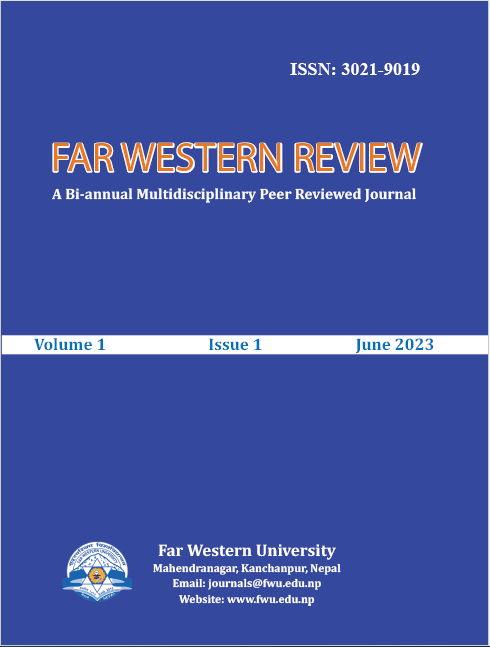Evaluating the Practices of Monitoring Mechanism in Local Government
DOI:
https://doi.org/10.3126/fwr.v1i1.58330Keywords:
Local governance, accountability, monitoring mechanism, perceptions, institutionalizationAbstract
This paper seeks to evaluate the existing practices of monitoring system and explore the perception of stakeholders towards the monitoring mechanism of the local government. Additionally, it assesses the strengths and weaknesses of monitoring system of the local government provisioned by the Act (LGOA-2017) in Nepal. The paper applies a descriptive research design, as well as in-depth interviews to justify its findings. Separate questionnaire schedules were used to collect information from both service providers and recipients. Similarly, a tested observation checklist was used to assess the compliance with the current monitoring actions of the study area. The data were analyzed using descriptive statistical tools using the SPSS computing technique. The findings of the study show that local governments have not adequately followed the monitoring practices and processes. However, the elected representatives and the citizens have taken monitoring action as a positive way. It appears that monitoring mechanism has served as a tool for local governance activities and service delivery. Yet, local governments have not prioritized monitoring tools as a governance compliance strategy. It is necessary to institutionalize the monitoring mechanism for effective service delivery.
Downloads
Downloads
Published
How to Cite
Issue
Section
License
Copyright (c) 2023 Min Bahadur Shahi

This work is licensed under a Creative Commons Attribution-NonCommercial 4.0 International License.
CC BY-NC: This license allows reusers to distribute, remix, adapt, and build upon the material in any medium or format for noncommercial purposes only, and only so long as attribution is given to the creator.




